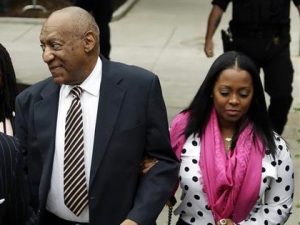Welcome to the Line
Recently, the Federal Communications Commission (FCC) took up and reversed net neutrality. If you are unfamiliar with net neutrality, it is the principle that Internet Service Providers (ISPs) are not allowed to discriminate against certain users, websites, content, or whatever else. For example, Spectrum (formerly Time Warner) is not allowed to block its users from or charge them for accessing Facebook. Or, for a real-life example, Madison River Communications was fined $15,000 by the FCC for restricting their costumers’ access to a rival service. John Oliver explains net neutrality here. (Language warning.) In a way, you could think of net neutrality as an equal opportunity law for the internet. Or, at least you could have. On December 14, 2017, FCC chairman Ajit Pai and the FCC voted to repeal net neutrality, which leaves the internet in the United States in a fairly bad spot.
Luckily, in my opinion, the FCC has a gauntlet of lawsuits to go through now that it repealed net neutrality. It also seems there is a fair number of people who share my viewpoint. As it stands, the FCC had something around 22 million complaints filed against its ruling. FCC Chairman Pai canceled his scheduled appearance at the to the Consumer Electronics Show in Las Vegas due to death threats. On top of this, the Internet Association is bringing together powerhouse companies to join the fight against the unpopular ruling. Companies like Google, Amazon, Etsy, and Alphabet have stated they are joining the lawsuit. The Internet Association’s President and CEO Michael Beckerman stated, “The final version of Chairman Pai’s rule . . . dismantles popular net neutrality protections for consumers. This rule defies the will of a bipartisan majority of Americans and fails to preserve a free and open internet.” Netflix even took to Twitter and sent the message, “In 2018, the Internet is united in defense of #NetNeutrality. As for the FCC, we will see you in court.” Furthermore, a number of states have come forward stating their opposition to the repeal and have indicated that they, too, will join the fight.
Seeing this net neutrality issue unfold has solidified my choice to attend law school.


